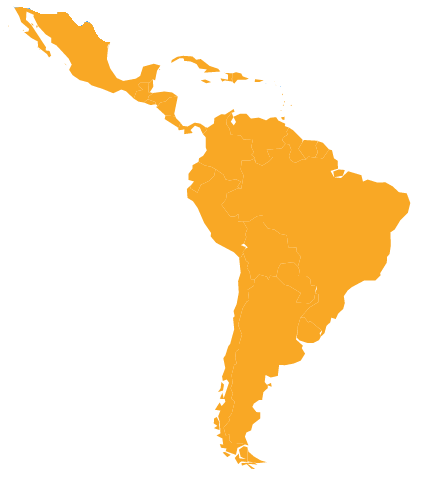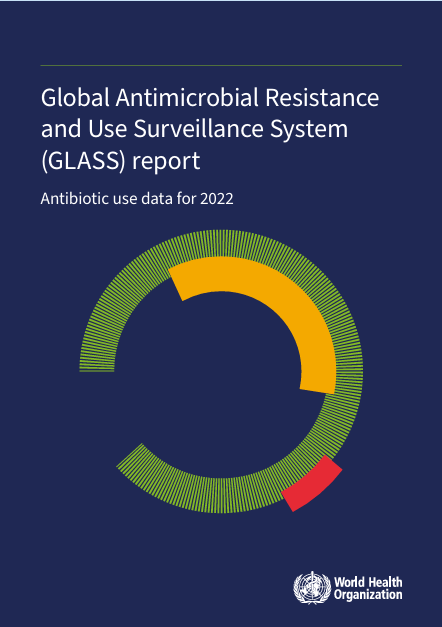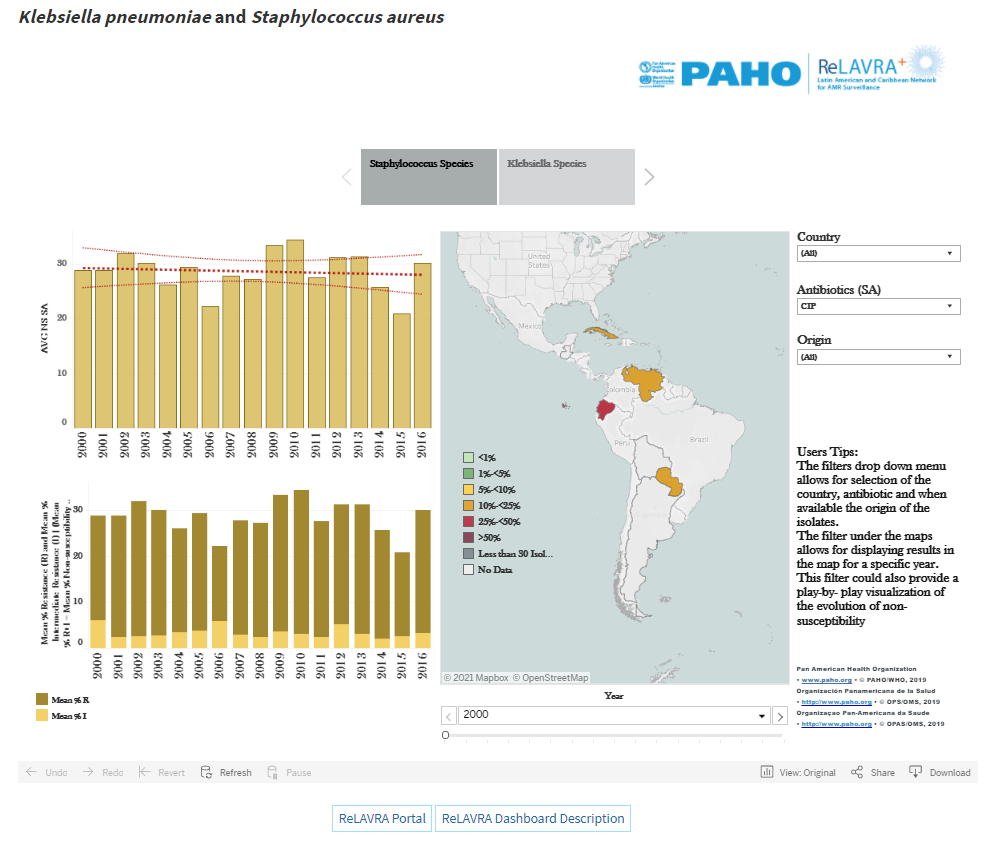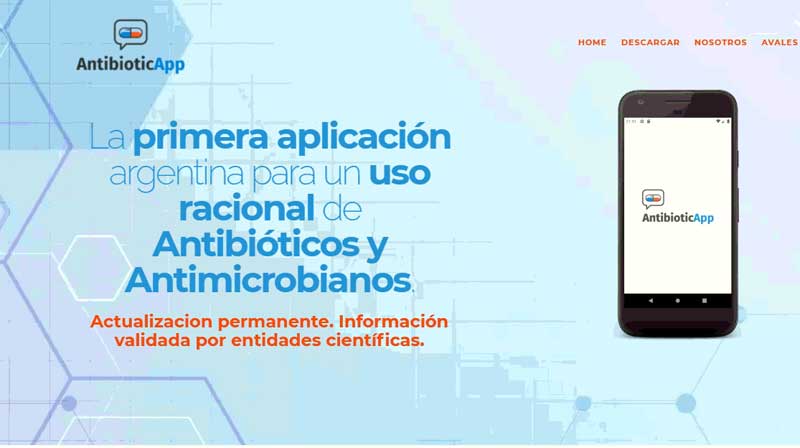
 A compilation of information, resources, and research from organizations and networks in Latin America on AMR.
A compilation of information, resources, and research from organizations and networks in Latin America on AMR.
The aim is to make it as easy as possible to find the right information, support, and guidance, by connecting all the Latin American initiatives together and making all the sources of reliable information and tools both accessible and discoverable. This region covers South America, Central America, and the Caribbean.
Research updates ↓ | Study Profiles from Latin America→ | AMR surveillance networks covering Latin America ↓ | Latin America AMR National Action Plans ↓
Research updates on AMR from Latin America
AntibioticAppThis free, downloadable mobile application is designed specifically for healthcare professionals, including doctors, pharmacists, nurses, and anyone interested in maintaining up-to-date knowledge about infectious diseases and responsible antibiotic use. The overarching mission of this tool is to optimize the prescription and use of antimicrobials, combating the emergence and spread of bacterial resistance in Argentina. The contents are periodically updated by the Argentine Society of Infectious Diseases (SADI), the Argentine Association of Hospital Pharmacists (AAFH), the University Center for Research in Microbiology and Parasitology (CUDEMyP), and the Argentine Society of Intensive Care (SATI). Access The App |
Latin America AMR surveillance networks

Global Antimicrobial Resistance Surveillance System (GLASS)
Launched in 2015, the WHO Global Antimicrobial Resistance Surveillance System (GLASS) has been developed by the WHO to support the global action plan on antimicrobial resistance. As of May 2021, 109 countries/territories are enrolled in GLASS. The aim is to support global surveillance and research in order to strengthen the evidence base on antimicrobial resistance (AMR), help inform decision-making and drive national, regional, and global actions.
Read the GLASS report: antibiotic use data for 2022 here.
Read the GLASS WHO 2022 Report here.
Previous reports can be accessed here.
Guide: AMR Surveillance in Low- and Middle-Income Settings: A Roadmap for Participation in the Global Antimicrobial Surveillance System (GLASS) tool (Fleming Fund 2016)
Access general resources on AMR surveillance

ReLARVA (PAHO) data visualization dashboard
The Latin American Antimicrobial Resistance Surveillance Network (ReLAVRA) was established in 1996 by the Pan American Health Organization/World Health Organization together with its Member States, to collect robust and reliable data on AMR to support policies and interventions for AMR prevention and control of AMR in the Latin American Region. While the website is in Spanish, google translate services allow for an automatic translation to English.
Featured Training Courses
|
There are various training courses available in Spanish. You can access these here! |
Do you know of free short courses in Spanish or Portuguese looking at AMR research and practice? Get in touch!! |
Access more eLearning on AMR
Latin America AMR National Action Plans
The map highlights NAPs for various countries in Latin America. Click on the country pins to access national action plans on combatting AMR in Latin America. Is your country’s NAP indicated? If not, please let us know on amr@tghn2.org!
There are various groups and organizations supporting the implementation of NAPs in Latin America:
|
ReACT How to develop a national action plan Read more about ReACT's work in Latin America here. |
|
WHO WHO Webinar Series to Support Implementation of National Action Plans on Antimicrobial Resistance The WHO has an online forum that features Webinars and Discussions to support the implementation of National Action Plans for AMR. Resources from this webinar series aim to support continued NAP implementation work at country level and exchange of best practices and lessons across countries and practitioners. Read more!!! A WHO Implementation Handbook for National Action Plans on Antimicrobial Resistance was launched in March 2022 and the WHO/FAO/OiE: Tripartite AMR country self-assessment survey (TrACSS) was launched to support monitoring of country progress in the implementation of the national actions plans. Tripartite highlights on their projects in Latin America "Working Together to Fight Antimicrobial Resistance". |
|
ICARS ICARS is a OneHealth research partnership supporting the development & implementation of context-specific & cost-effective solutions to tackle AMR in LMICs, by co-developing tailored solutions with LMIC governments and researchers. These solutions are then implemented by the LMIC stakeholders using ICARS funding and expertise. Read more about this project! |
Key research organizationsThe following is a list of Latin American organizations that are responding to AMR. ReAct Latin America | PAHO - AMR | Antimicrobianos Argentina (INEI) |
If you have anything to add or suggestions on what would be useful please get in touch: info@theglobalhealthnetwork.org
